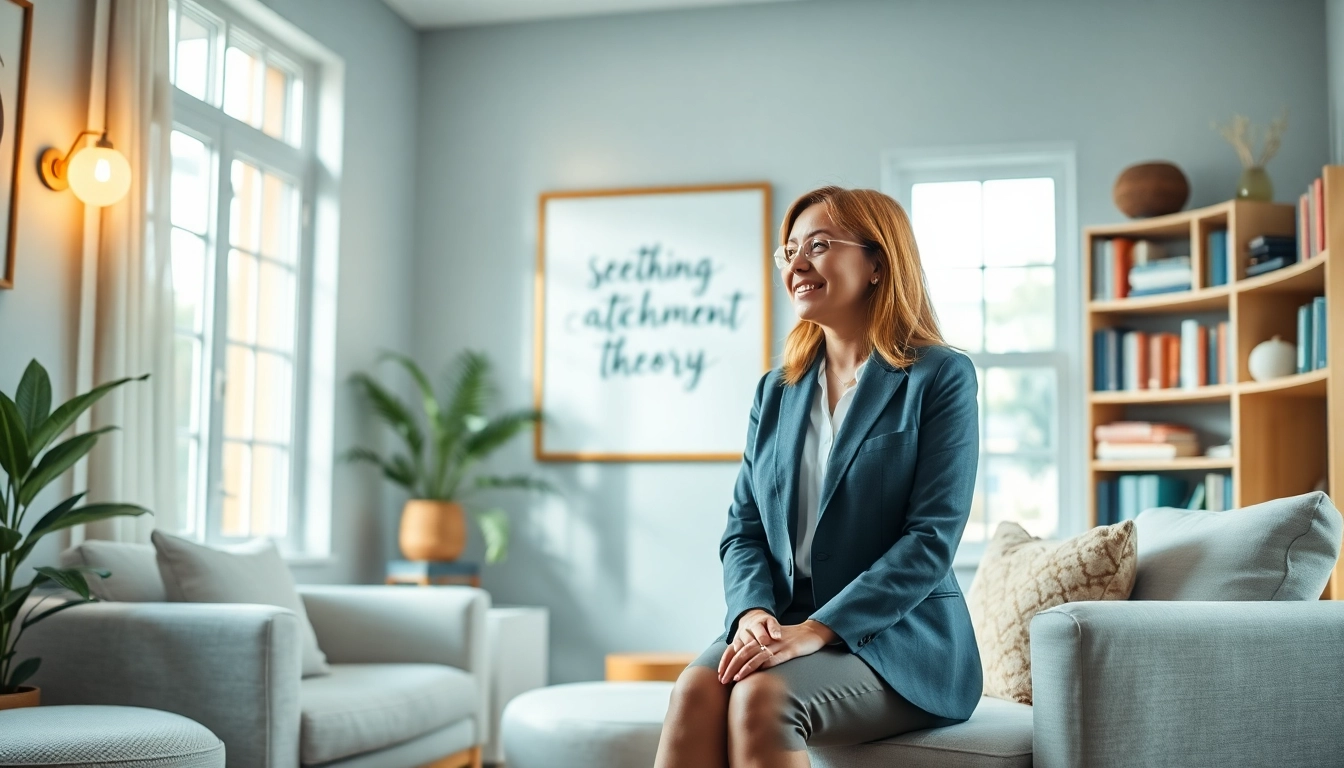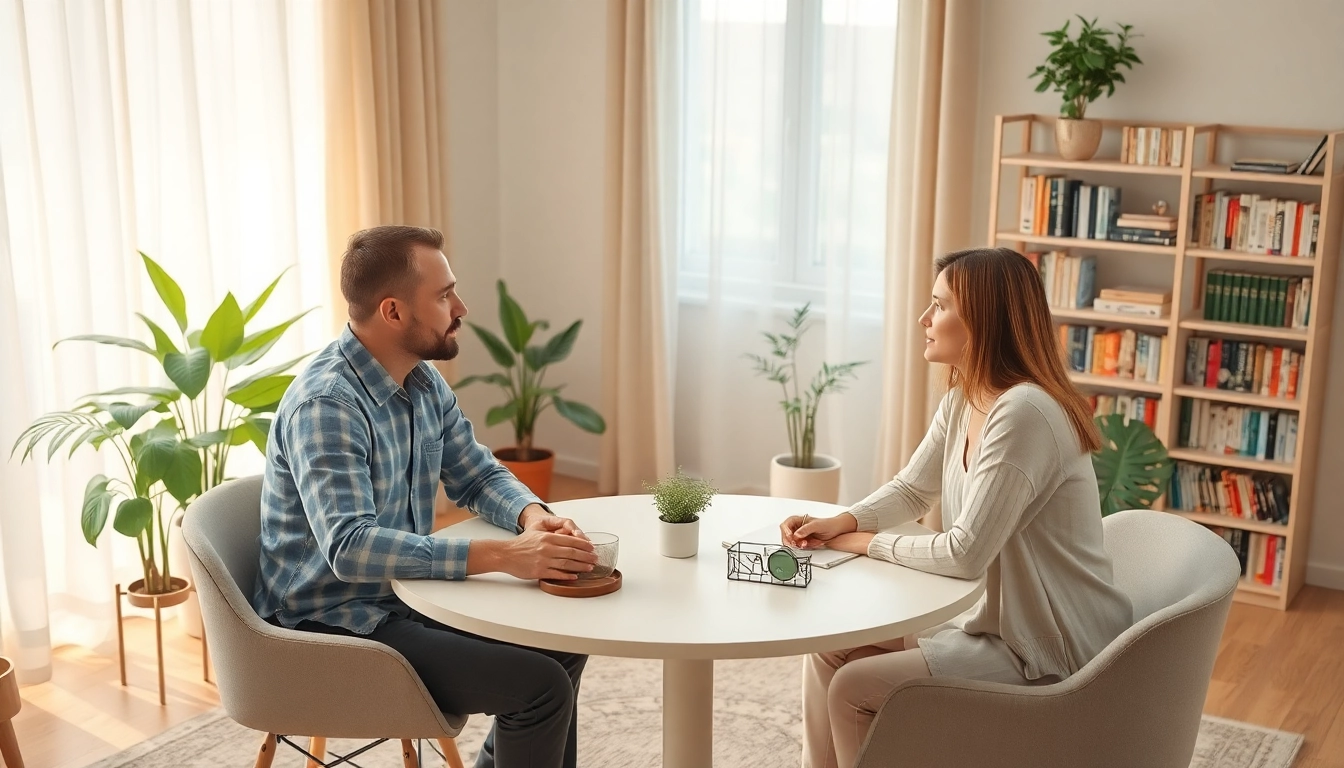What is Attachment Theory?
Attachment theory, developed by John Bowlby and later expanded upon by Mary Ainsworth, focuses on the bonds formed between individuals, particularly in early childhood. It posits that the relationships established with primary caregivers profoundly affect emotional and social development throughout a person’s life. Understanding attachment theory is essential for grasping how these early interactions shape an individual’s worldview, behavior, and relationships.
Overview of Attachment Styles
Attachment styles are typically classified into four primary categories: secure, anxious, avoidant, and disorganized. Each style represents differing dynamics in relationships and emotional regulation:
- Secure Attachment: Individuals with a secure attachment style feel comfortable with intimacy and are often warm and loving. They are able to trust others and themselves, leading to healthier relationships.
- Anxious Attachment: Those with an anxious attachment style tend to crave closeness but are often worried about their partner’s ability to love them back. This can lead to clinginess and anxiety in relationships.
- Avoidant Attachment: People with an avoidant attachment style typically value independence over intimate relationships, often distancing themselves from others to avoid being vulnerable.
- Disorganized Attachment: This style combines elements of both anxious and avoidant attachment and is often the result of trauma or neglect. Individuals may display chaotic behavior in their relationships.
Historical Development of Attachment Theory
Attachment theory emerged in the mid-20th century, with Bowlby’s seminal research highlighting the importance of the child-caregiver relationship in emotional development. His work was influenced by psychoanalytical concepts and the study of animal behavior. Ainsworth’s Strange Situation experiment further confirmed Bowlby’s findings, providing empirical evidence for the different attachment styles via observational studies.
Importance of Understanding Attachment
Grasping the nuances of different attachment styles is crucial for individuals and professionals alike. It provides insight into personal behavior, relationship dynamics, and emotional responses. Recognizing one’s attachment style can pave the way for healthier interactions and personal growth. For instance, those aware of their anxious attachment may work consciously to overcome feelings of insecurity, potentially leading to improved relationships.
Role of an Attachment Theory Specialist
An attachment theory specialist is a trained mental health professional focused on understanding and applying attachment theory frameworks in therapy settings. These specialists work with individuals, couples, and families to enhance emotional connections and resolve relationship conflicts.
Qualifications of a Specialist
Qualifications for becoming an attachment theory specialist typically require advanced degrees in psychology, social work, or counseling. Additional certifications in attachment-based therapies, such as Emotionally Focused Therapy (EFT) or Attachment-Focused Therapy, offer specialized training in the implementation of attachment theory within therapeutic settings. Continuous professional development is also essential to stay updated on the latest research and therapeutic techniques.
Therapeutic Approaches Used by Specialists
Attachment theory specialists employ various therapeutic approaches tailored to the specific needs of clients. Notable techniques include:
- Emotionally Focused Therapy (EFT): A structured approach that focuses on the emotional bond between partners, facilitating secure attachments.
- Attachment-Based Family Therapy (ABFT): Aims to improve family relationships, emphasizing the emotional bonds among family members.
- Trauma-Informed Care: Recognizes the impact of trauma on attachment and incorporates strategies to foster safety and healing in relationships.
How They Address Various Attachment Styles
Each attachment style requires different therapeutic strategies. For example:
- Secure Attachment: These individuals often benefit from strengthening existing relationships and developing deeper emotional connections.
- Anxious Attachment: Therapists may focus on building self-esteem, enhancing communication skills, and fostering secure relational patterns.
- Avoidant Attachment: Therapists work with clients to explore fears around intimacy and teach them to engage in emotionally available relationships.
- Disorganized Attachment: Treatment plans may include trauma processing and creating a secure therapeutic environment to help clients understand and manage their emotions effectively.
Benefits of Seeking an Attachment Theory Specialist
Engaging with an attachment theory specialist can yield numerous benefits that extend beyond individual therapy sessions, impacting various facets of one’s personal and professional life.
Improved Relationships and Communication
Individuals working with a specialist often experience enhanced communication skills, leading to more meaningful interactions. By understanding their attachment styles and those of their partners, people can navigate conflicts with empathy and foundational love. This awareness creates pathways for trust and intimacy to flourish.
Enhanced Emotional Well-being
Therapy focused on attachment can also lead to improved emotional well-being. Individuals learn to regulate their emotions and understand the root causes of their feelings, enabling them to cope better with anxiety, depression, and other emotional challenges. This emotional clarity can transform how one interacts with the world, promoting a more positive outlook on life.
Personalized Treatment Plans
One of the significant advantages of consulting with an attachment theory specialist is the development of personalized treatment plans. These plans are based on the individual’s specific attachment style, therapeutic goals, and life experiences, ensuring that the approach is tailored to their unique context and needs. This customization increases the likelihood of successful outcomes in therapy and helps individuals feel heard and understood throughout their healing journey.
Finding the Right Attachment Theory Specialist
Finding the appropriate specialist can feel daunting, but several key considerations can streamline the process and ensure compatibility with a chosen therapist.
Key Considerations When Choosing a Therapist
When seeking an attachment theory specialist, keep the following factors in mind:
- Credentials: Verify their qualifications, licenses, and any additional training in attachment-focused therapies.
- Experience: Look for professionals with specific experience working with your identified attachment style or relationship issues.
- Therapeutic Approach: Different specialists may employ various therapeutic methods. Research which approach resonates with you, and ensure it aligns with your goals for therapy.
- Compatibility: Building a rapport with your therapist is vital. Consider initial consultations to gauge comfort level and establish trust.
Questions to Ask Potential Specialists
To assess potential specialists effectively, prepare questions that cover crucial aspects of their practice:
- What is your specific experience with attachment theory?
- How do you integrate attachment theory into your therapeutic practices?
- What methods do you utilize to help clients recognize and alter maladaptive attachment behaviors?
- Can you share examples of successful therapeutic outcomes with previous clients?
Resources for Locating Specialists Near You
Several online directories can assist in finding attachment theory specialists in your area. Websites like Psychology Today provide comprehensive listings, allowing you to filter by location, specialization, and insurance options. Local mental health organizations and online therapy platforms also offer valuable resources for connecting with skilled professionals.
Real-Life Examples of Transformation Through Attachment Therapy
Real-world experiences often illustrate the profound impact of engaging with an attachment theory specialist. Here, we examine notable case studies demonstrating the transformative power of this therapeutic approach.
Case Studies of Successful Outcomes
Consider the story of Jane, a 32-year-old woman with an anxious attachment style. Through therapy, Jane learned to understand her triggers of anxiety in relationships and how past experiences impacted her current behaviors. Working with her attachment specialist, she developed effective coping mechanisms and communication techniques, ultimately leading to a healthier partnership with her boyfriend.
Another case study involves Tom, a father with an avoidant attachment style struggling to connect with his children. Through targeted therapy, Tom recognized his avoidance patterns and worked to establish a deeper emotional relationship with his family. By opening up about his fears and vulnerabilities, he was able to cultivate a more nurturing environment at home.
Testimonials from Clients
Clients often report significant improvements in their emotional well-being and interpersonal relationships after working with an attachment theory specialist. For instance, a client named Sarah shared how her therapist helped her break free from cycles of unhealthy relationships: “I didn’t realize how much my fear of closeness was impacting my ability to connect. With my therapist’s help, I’ve started to feel at ease in intimate relationships.”
Long-Term Effects on Relationships
The long-term benefits of attachment-based therapy extend beyond immediate symptoms. Many clients report enjoying healthier, more fulfilling relationships post-therapy. By developing secure attachment patterns, individuals often experience increased longevity in relationships, enhanced emotional intimacy, and improved conflict-resolution skills. The ongoing practice of these skills in daily life fosters an environment for personal growth and enhanced relational dynamics.



